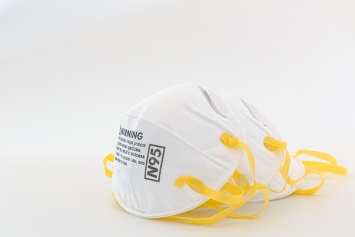On March 14, the Occupational Safety and Health Administration (OSHA) issued temporary guidance regarding enforcement of annual respirator fit-testing requirements under the respiratory protection standard. The agency directed its field offices to exercise discretion to not cite an employer for violations of the annual fit testing requirement if the employer meets certain conditions.
This policy is intended to help ensure healthcare workers have full access to needed N95 respiratory protection in light of anticipated shortages during the COVID-19 pandemic.
COVID-19 is a respiratory disease caused by a novel coronavirus, also referred to as “the SARS-CoV-2 virus,” first identified in Wuhan City, China in December 2019.
OSHA instructed field offices to use their discretion as long as employers:
- Make a good-faith effort to comply with fit-testing requirements (29 CFR §1910.134);
- Use only respirators certified by the National Institute for Occupational Safety and Health (NIOSH);
- Implement strategies recommended by OSHA and the Centers for Disease Control and Prevention (CDC) for optimizing the supply of N95 filtering facepiece respirators and prioritizing their use for healthcare workers providing direct care of patients with known or suspected COVID-19;
- Perform initial fit tests for each healthcare worker with the same model, style, and size respirator that the worker will be required to wear for protection against COVID-19;
- Inform workers that the employer is temporarily suspending the annual fit testing of N95 filtering facepiece respirators to preserve and prioritize the supply of respirators for use in situations where they are required to be worn;
- Explain to workers the importance of performing a user seal check at each donning to make sure they are getting an adequate seal from their respirator, in accordance with the procedures outlined in an appendix to the standard.
- Conduct a fit test if they observe visual changes in the employee’s physical condition that could affect respirator fit such as facial scarring, dental changes, cosmetic surgery, or obvious changes in body weight and explain to workers that, if their face shape has changed since their last fit test, they may no longer be getting a good facial seal with the respirator and, thus, are not being adequately protected; and
- Remind workers that they should inform their supervisor or their respirator program administrator if the integrity and/or fit of their N95 filtering facepiece respirator is compromised.
The agency encourages healthcare employers to follow guidelines from the CDC, including strategies for optimizing supplies of N95 respirators. One such measure suggested by the CDC is that healthcare employers may provide healthcare worker with another respirator of equal or higher protection, such as N99 or N100 filtering facepiece respirators, reusable elastomeric respirators with appropriate filters or cartridges, or powered air purifying respirators (PAPR).
Employers also may substitute non-destructive qualitative fit testing for destructive quantitative testing, according to OSHA.
The temporary enforcement discretion policy remains in effect until further notice.
“Today’s guidance ensures that healthcare workers have the resources they need to stay safe during the COVID-19 outbreak,” Secretary of Labor Eugene Scalia said in an agency statement.
“America’s healthcare workers need appropriate respiratory protection as they help combat the COVID-19 outbreak,” Principal Deputy Assistant Secretary for Occupational Safety and Health Loren Sweatt added.

